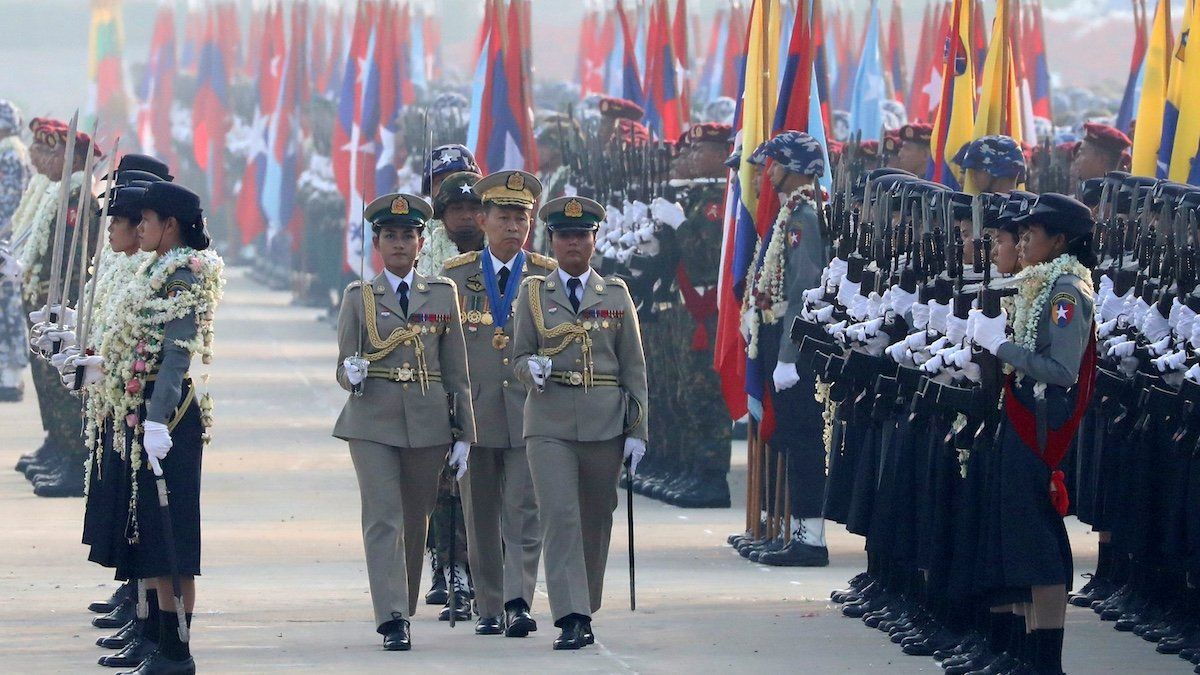Deputy Prime Minister Gen. Soe Win has not been seen in public since April 3, with unconfirmed reports alleging he was injured in a drone attack — or purged from leadership. Either explanation for his long absence comes down to the same root cause: six months of rebel victories and, as of April, daring air strikes on junta strongholds.
The rebel offensive: Starting in October, a loose coalition of ethnic minority militias backed by the People’s Democratic Forces (supporters of the overthrown democratic government) launched offensives that have seized almost all of Myanmar’s frontiers with India, China, and Thailand. With trade routes cut off, the junta is feeling pressure on its military supply chains and key sources of revenue.
Will the military fall? It’s hard to imagine. They may be on the back foot, but the feared Tatmadaw has a $2.7 billion budget while some rebels are building their own artisanal firearms (talk about scrappiness).
That said, the recent rebel drone strikes on the capital and other key junta sites reportedly caused tension among the cabinet (and possibly left Soe Win incommunicado). If it is true that the rebels are chipping away at the regime’s internal cohesion, that may be their most consequential victory yet.

















